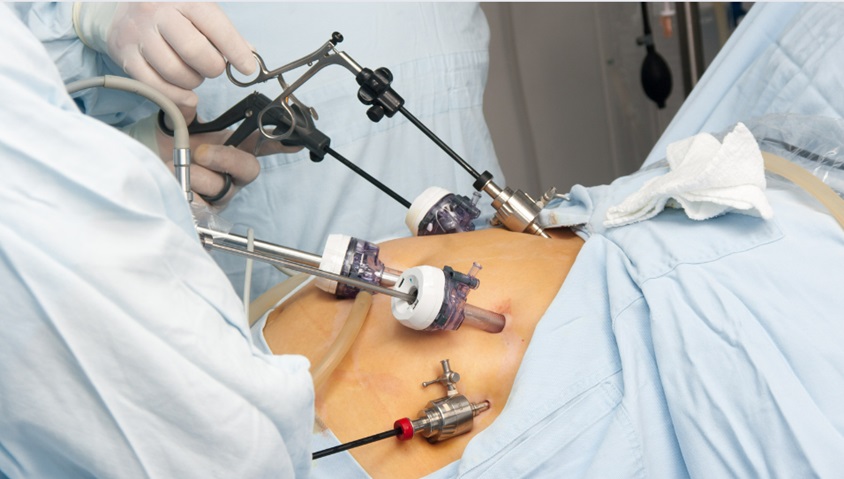What to Expect During Recovery After Sleeve Gastrectomy Surgery?

Sleeve gastrectomy is a bariatric procedure for weight loss, especially in Baltimore. It involves reducing the size of the stomach and removing a portion of it to limit food intake. The entire procedure is done laparoscopically, making it minimally invasive with faster recovery time compared to traditional open surgery. If you’re considering sleeve gastrectomy in Baltimore, you should know a few things about the recovery process. This article will give you an overview of what to expect during your recovery after this weight loss surgery.
Immediate Post-Surgery Phase
In the first few days after surgery, patients are typically advised to stay in the hospital for careful monitoring. During this period, the primary focus is on managing pain and preventing complications. Most patients experience some discomfort and may require pain medication to ease the initial recovery phase.
Dietary Adjustments
One of the most significant changes following sleeve gastrectomy is dietary adjustment. Patients start with a liquid diet for the first few weeks, gradually progressing to pureed and soft foods as the stomach heals. Adhering to the prescribed dietary guidelines is essential to avoid any complications and ensure the stomach adapts appropriately to its new size.
Physical Activity
While rest is crucial immediately after surgery, incorporating light physical activity is also essential. Short walks and simple movements can help improve blood circulation and expedite healing. As recovery progresses, patients can slowly increase their activity levels under their doctor’s guidance to rebuild strength and stamina.
Long-term Lifestyle Changes
Successful recovery and long-term weight maintenance depend heavily on lifestyle changes. Regular exercise, a balanced diet, and staying hydrated are essential practices. Incorporating these habits can significantly promote overall well-being. It is also essential to understand the changes that may take place in your life after sleeve gastrectomy to stay better prepared and to reap the benefits of the surgery.
Emotional and Psychological Support
The emotional and psychological aspects of recovery should not be overlooked. Undergoing significant weight loss can be both exciting and challenging. Emotional support from family, friends, or support groups can play a vital role in maintaining motivation and addressing any concerns or anxieties that may arise.
Frequently Asked Questions
Q1: How long will I need to follow a liquid diet post-surgery?
A: A liquid diet is typically required for about two to three weeks post-surgery. Your healthcare provider will give you a detailed plan to transition to solid foods gradually.
Q2: When can I return to work after the sleeve gastrectomy?
A: Most patients can return to work within two to four weeks, depending on the nature of their job and individual recovery speed.
Q3: Are there any long-term dietary restrictions after the surgery?
A: While there are no specific lifelong restrictions, it is crucial to maintain a balanced and healthy diet to support long-term success and avoid complications.
Q4: How did sleeve gastrectomy become a bariatric procedure?
A: Sleeve gastrectomy, also known as gastric sleeve surgery, was initially intended as the first step of a two-part weight loss procedure called “duodenal switch.” However, due to its high success rate and low risk of complications, it soon became a stand-alone bariatric procedure. To learn more about the evolution of sleeve gastrectomy, you may check out this blog.
The journey after a sleeve gastrectomy involves careful management and lifestyle modifications. Following the prescribed guidelines and seeking support when needed can lead to a successful recovery and sustained weight loss.
